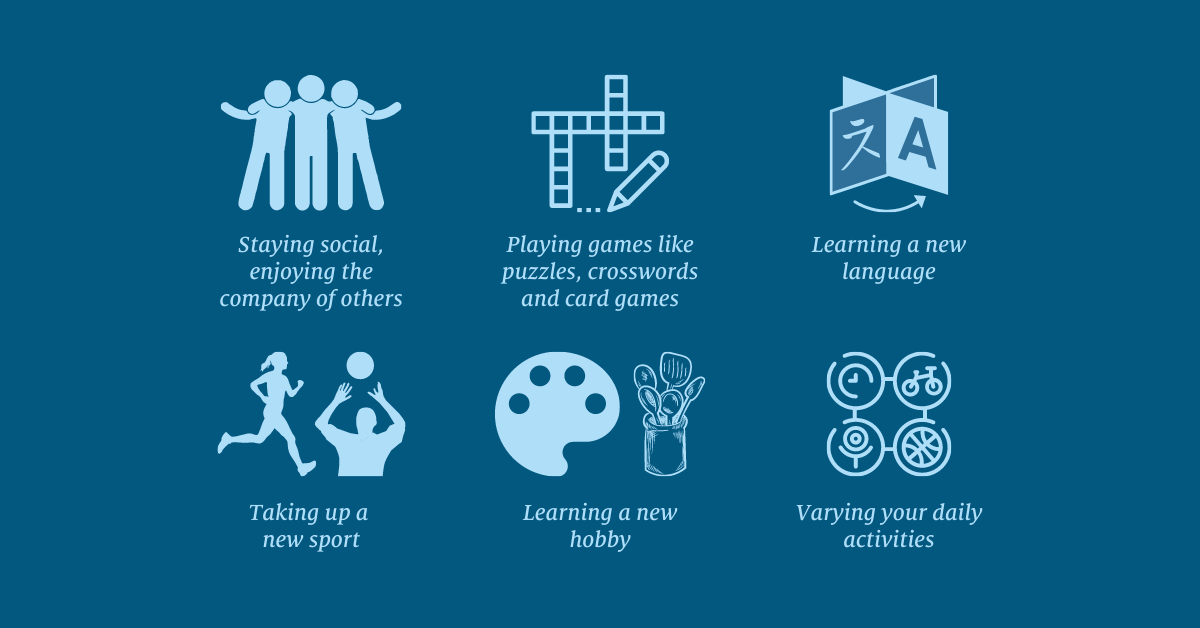Being brain healthy is relevant at any age, whether you are young, old or in between. However, it is particularly important once you reach middle age as this is when changes start to occur in the brain.
Dementia describes a collection of symptoms that are caused by disorders affecting the brain that affect thinking, behaviour and the ability to perform everyday tasks. Brain function is affected enough to interfere with the person’s normal social or working life.
The risk factors for dementia are different in everybody but your potential for developing dementia may be influenced by a range of non-modifiable and modifiable risk factors.
Non-modifiable risk factors are risks that cannot be changed, such as:
- Age – as you age, your risk of developing dementia increases
- Genetics – there are a few very rare forms of dementia associated with specific genes
- Family history – a family history of dementia increases your risk of developing dementia but at this stage it is not clear why.
Modifiable risk factors are risks that can be changed through lifestyle choices. You can reduce your risk of dementia by looking after the health of your heart, body and mind. While we cannot change getting older, genetics or family history, scientific research suggests that changing certain health and lifestyle habits may make a big difference in reducing or delaying your risk of developing dementia. It’s never too early or too late to start.
Keeping your brain active is important to keep it functioning well and there are several things you can do to help. Mental exercise helps to build new brain cells and strengthen connections between them. This helps to give the brain more ‘reserve’ or ‘back up’ so that it can cope better and keep working properly if any brain cells are damaged or die.
There are many ways to look after your mind, including:
- Staying social, enjoying the company of others
- Playing games like puzzles, crosswords, and card games
- Learning a new language
- Taking up a new sport learning a new hobby like painting, sewing, woodwork and cooking
- Varying your daily activities.
Depression is often associated with an increased risk of dementia so it is important to seek medical advice should you recognise the symptoms of depression and to look after your psychological wellbeing.
Southern Cross Care (WA) Inc. acknowledges the information provided by Dementia Australia. For more information visit www.dementia.org.au
Read similar articles about healthy ageing in our Southern Star Summer edition.

